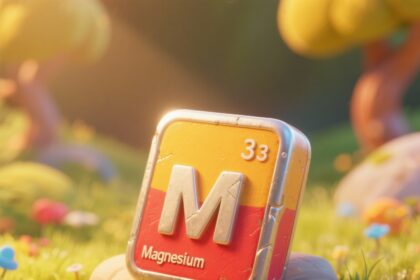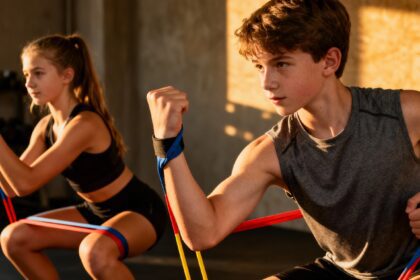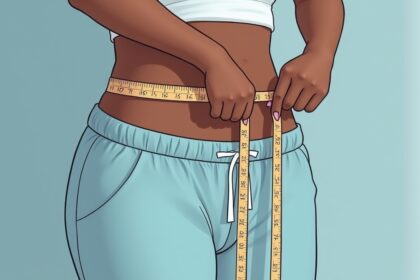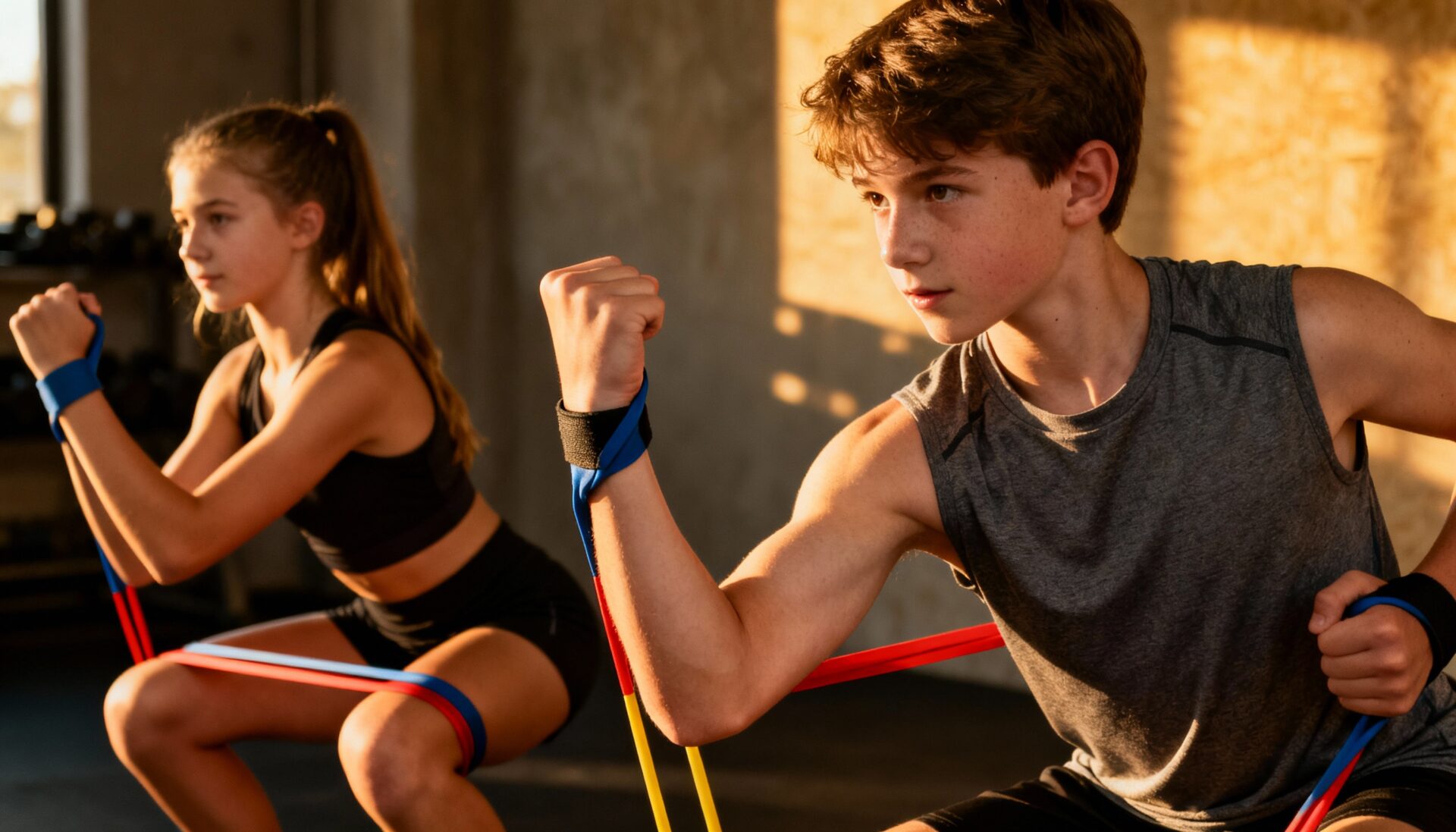By Paige Norberg
Why People Feel Differently About Exercise
When you think of exercise, what is the immediate feeling you get? Some may feel enthusiastic. Others may feel conflicted. Yet, many feel discouraged, defeated or even distain towards that word. Why do people have such different feelings when it comes to the subject of working out and living an active lifestyle?
Everyone has their own background that could influence why they like or dislike exercise. However, the reason it can be such a sensitive topic to some and a passion for others seems to come down to the word “enjoyment”. Those who find enjoyment in what they do tend to keep doing it. In contrast, if you dislike something or have had a bad experience, there is little chance you’ll want to do it again.
To maintain a consistent, active lifestyle while also improving your athletic performance, you should probably have some passion or enjoyment for what you are doing.
The Problem With Strict, Intense Workout Programs
Oftentimes, when people decide they want to start working out they immediately choose a strict, intense workout program that is not enjoyable nor maintainable. Thus, they end up getting disheartened and uninterested and quitting all together. It becomes an endless cycle where you repeatedly try again and then give up shortly after.
As mentioned in the 2020 article You Can Get Your Exercise Motivation Back If You’re Struggling, “If what you’re doing isn’t working, it’s time to find something that will.” This article emphasizes the idea of “getting real” with yourself and knowing that the specific type of exercise you are trying may not fit for you. But that’s okay!
He continued, “Before you quit, try everything you can to stay on track…sometimes you just need something new and fun to keep you going.”
To stay consistent and to see athletic improvements, you must find a particular activity, sport, or fitness program that you look forward to and that will make you feel fulfilled.

Burnout in Young Athletes
This lack of enjoyment is seen very often among young athletes. Adults who have played a sport through their entire childhood may have had the experience of feeling “burned out’ or may have lost the sense of “fun” in what they were doing.
According to the 2016 book Best Practice for Youth Sport, a common symptom of burnout is devaluing the sport you play. “Athletes may say ‘I’m sick of doing this’; ‘I don’t care about playing anymore’: or ‘It’s just not fun anymore.’ Another common symptom is questioning things – for example, ‘Why am I doing this?’”.
There are many cases in youth sports where the child may be influenced by their parents or coaches to take the training and the sport very seriously. This can include extra training outside of practices, focusing solely on winning, repetitive schedules, and a lack of playtime and breaks.
A 2019 article from the New York Times, Keeping the Fun in Children’s Sports, expressed: “Sometimes adults and schedules and pressure can take the fun away from kids who originally just wanted to go out and play…”
The article goes on to say, “The evidence shows that what makes sports really fun for kids is trying hard, making progress, being a good sport, experiencing positive coaching”.
When there is no sense of fun in what you are doing, there is little desire to improve. There is no desire to keep going or to make it an integral part of your life. The enjoyment of any sport, activity, or workout program is critical if you want any advancement or continuity.
The Importance of Finding What You Love
A 2018 article The Importance of Finding a Fitness Activity You Love, stated, “When it comes to exercising, something most would not consider mandatory, we need to love it if we’re going to make it a habit”.
Because exercising is not mandatory for most people, there is less of an obligation to make it a part of their daily schedule. Finding specific exercises you enjoy may be challenging. While it will take time, it will be worth it long-term. With enjoyment there is a greater chance of sticking with it and making it a part of your lifestyle.
Step out of your comfort zone and explore different activities you may never have tried. The same 2018 article encourages us all to “take a fitness risk”. It stated that you should “push yourself to try something that’s high impact and low impact as well as low intensity and high intensity and see what gets you pumped and excited”.
Yoga, hiking, rock climbing, bike riding and even cleaning around the house or playing a musical instrument can all be considered beneficial physical activities that you can add to your weekly schedule. There are sports clubs to join as well as countless dance and fitness classes you can try that you may end up loving! Even getting a membership at a local gym or having a personal trainer can be something that ignites a spark in you to keep going. It all comes down to finding what you enjoy the most.

Consistency Builds Progress and Enjoyment
Creating a habit is important. According to the 2017 blog The Importance of Consistency in your Training, “If you can increase the consistency of how often you attend training, then you will find your skills (and your enjoyment of the activity) increasing in due proportion”.
The more consistent you are the quicker you may see improvements. The blog even stated that your enjoyment of the activity, program or sport will increase. You will notice that the skills that were previously challenging for you may have become easier.
The passion you have for that specific activity or sport is what gives you motivation to attempt the next challenge or skill.
The same blog advised “to establish your training frequency (one session a week, two sessions a week, a third session every other week, whatever your schedule and wallet will allow) and then stick to it with all the consistency and self-discipline you can muster”.
This helps avoid getting burned out because you will be able to schedule breaks and rest time for you to recover. It also allows you to set realistic expectations for yourself. It’s less likely that you’ll be disappointed if you’re not able to maintain that particular schedule.
Building Habits Step by Step
A 2019 blog suggested, “When taking on a new challenge, focusing on taking it day by day might be a helpful mindset. Yes, we might be aiming to create a lifelong habit; however, thinking about just starting a habit to last for years could be daunting”.
You have the ability and the choice to change your activity or workout style whenever you feel like it. The blog advised to make small changes first until it becomes more comfortable and natural. Then, increase the number of days you go or the time in which you participate.
The advice is to naturally create some form of sustainable and effective long-term habit. If you are simply trying to improve your health or live a healthy lifestyle, the goal is to find what you love doing regularly. “In the end, consistency will help you reach your goals”.
Consistency and Enjoyment Go Hand in Hand
It seems evident that consistency and enjoyment work in unison. This applies for all ages and all levels of athletic performance.
If you are guilty of feeling distaste at the idea of exercise, it is time to act. Take the time to find what you enjoy. It will benefit you both mentally and physically in the long-term.
Regarding fitness and health, there is no “perfect guide” to what works for each individual. Because of health conditions, lifestyle differences, and interests, exercising should be adaptable. Everyone should be able to enjoy it as well as see improvements.
There is some workout, activity, or sport out there waiting for you. It’s time to find what fits for you!
References
Farrell, K. (2017, October 30). The importance of consistency in your training. Keith Farrellhttps://www.keithfarrell.net/blog/2017/10/importance-consistency-training/
Peters, H. (2019, June 6). In Training, Consistency Is the Key to Your Fitness Goals. NIFS
Healthy Living Blog. https://www.nifs.org/blog/in-training-consistency-is-the-key-to-your-fitness-goalsc=AU; o=The State of Queensland; ou=Queensland Health; ou=; ou=; (2021, January 5). 30 fun ways to get 30 minutes of physical activity today. Queensland Health. https://www.health.qld.gov.au/news-events/news/30-ways-to-get-active-exercise-fun
D. (2018, January 15). The importance of finding a fitness activity you love. Oui In France.https://www.ouiinfrance.com/the-importance-of-finding-a-fitness-activity-you-love/
Klass, P. (2019, July 1). Keeping the Fun in Children’s Sports. The New York Times. https://www.ntimes.com/2019/07/01/well/family/keeping-the-fun-in-childrens-sports.html
Vealey, R., & Chase, M. (2016). In Best practice for youth sport. essay, Human Kinetics.
Waehner, P. (2020, July 28). You Can Get Your Exercise Motivation Back If You’reStruggling. Verywell Fit. https://www.verywellfit.com/how-to-stay-motivated-to-exercise-123140







































